The Client
The Quality Education and Skills Training (QUEST) Alliance is a not for profit organisation that focuses on research-led innovation and advocacy in the field of teaching and learning. QUEST aims to create innovative, engaging learning experiences through the use of modern technology, to enable learners and facilitators to develop 21st century skills in their own time, at their own pace. They engage with multiple stakeholders to demonstrate and enable scalable solutions in education and vocational training using Information and Communication Technology (ICT).
QUEST focuses on children & youth, age 10-30, and provides them with a set of real-world skills along with opportunities to build confidence in a fun and engaging way that prepares them for work and life. QUEST is on a mission to empower 4 million learners & facilitators with 21st century skills for social and economic growth by 2023

Service Offerings
Services
Technology Stack
PHP - Laravel
Angular
Android - Kotlin
Raspberry Pi

AWS Cloudfront
AWS Elasticache
AWS RDS
AWS EC2

Jira

BitBucket
Problem Statement
QUEST has been at the forefront in developing ICT-enabled training and learning innovations across classrooms in India. QUEST empowered learners, trainers, and also educational institutions that were connected into an extended knowledge ecosystem. After successfully integrating technology in pedagogical practices, QUEST was now experiencing higher than ever expectations over digital delivery of its entire content assets. In 2015, QUEST initiated a mobile research to develop a blueprint for Anytime, Anywhere learning to enable lifelong learning and career development. As an outcome of the research initiative, QUEST set up strategic objectives to deliver game-changing, digital learning experiences through mobile devices to all its stakeholders in the ecosystem.
Business Requirements

In Phase 1, QUEST was interested in offering desktop and tablet-driven experiences to its stakeholders – learners, trainers/facilitators and administrators in educational institutions. Since QUEST controlled the adoption of devices among its learning centers, they were planning to do a targeted deployment on select devices and operating systems. QUEST was inclined to roll out the first wave of mobile digital experiences across Android tablets considering the total cost of ownership and ability to customize user experiences. For its stakeholders, the transition from desktop to a tablet would be a surprising, unique experience and hence they did not want to introduce a steep learning curve. Decisions on selecting optimal screen size, OS, version compatibility, choice between native apps and mobile web, responsive design that enables access on smartphones/feature phones etc. were left open.
All the content assets available currently classified as standard interactive content that will become available to MyQUEST app users. New content developed/packaged will be delivered incrementally to MyQUEST app users using Push/Pull/Play (more coverage in App Delivery Strategy/Ongoing Support Strategy sections). Additionally, in Phase 1, QUEST wanted to introduce personalized and collaborative experience to the app users. The volume of personalised content and the level of personalisation was to be low to start with and increased in subsequent phases. Introduction of personalization and collaboration features required developing user identification, authentication and authorization solutions. User roles and definition of privileges, special security and privacy concerns were to be detailed and addressed during the app development process.
QUEST required a web based admin panel for HQ admin team, center administrators and facilitators to maintain learner records and student data. The HQ admin team also required a strong user analytics platform to provide reports on event data, usage and offers multi-functional dashboards on user acquisition, learning centers and geo-location data that tags centers and learners.
Our Solution
We started the project with a discovery phase involving business analysts, architects, developers from Focaloid and the stakeholders from QUEST. The discovery phase was effective in finalising the features for the first version and to create a product road map. We decided to initially launch a tablet application with the existing content side loaded via an SD card. A tablet model which matched the specifications and also was commercially viable was finalised for the MVP. The existing content library of 300 hours of digital content which was originally created in flash was modified to HTML5 format which was then rendered in the application.

Major Features
Digital Content
Over 250 hours of interactive, gamified content focused on 21st century skills around Communicative English, Life Skills, Work Readiness, Digital Literacy, Technology in Careers and Self-Employment.
Student Management System
Helps trainers and center administrators manage centers, staff, students, courses and batches.
Learning Management System
Create, manage, deliver & track courses. Trainers can upload their own training materials to create customized courses.
Community
Promoting discussions and collaboration through virtual peer to peer community of students, trainers & alumni. Built in Rewards and Recognition system for learners to drive engagement.
Real-Time Analytics
Real time analytics to track learner progress and performance for trainers and students.
LearnPi
A low cost RaspberryPi based server that allows users to access Quest App even in offline settings.
Timeline / The Journey
-
2016
Quest Learning App Development started
-
2017
Quest Learning App launched on the Google Play Store Tablet App with sideloaded content & over the cloud updates 300 hours of digital content and Quest Tool kits for the 21st century
-
2018
Web based learning platform launched as part of Quest App LearnPi Launched – Deployed in 50+ centers across 8 States Progress Tracking and Real time analytics added to the app Personalised learning experience and gamification principles to make learning journey more engaging Quest Mobile App Launched
-
2019
Upgraded mobile app launched in Feb 2019 with 4000 active users 170+ mobile first lessons for Quest App 25000 students learning through offline digital content DGET Portal launched
-
2020
Upgraded Mobile App launched on Nov 30 2020 Introducing Job Search for Students & Alumni Alumni Engagement on the platform Thriving peer group community of students and alumni Downloadable Lessons and Offline Access
Challenges
- Data sources & Interfacing – Interfaces to data sources/back-end systems did not exist. Data was maintained on Google Sheets and did not have any established API interfaces.
- Reusing Existing Content – QUEST delivered various blended learning curriculum programs that were rendered through desktop computers and consisted of digital learning assets for students, trainers (training of trainers), learning aids for classrooms, and self-assessments. Interactive digital assets were packaged using Adobe Flash, Adobe Captivate, Articulate Studio, Storyline etc. and some offered SCORM/LMS compliance. Stand-alone resources consisted of PDF, PPT, HTML documents, raw media assets such as videos and audio clips that are accessed directly by learners. And new content was being developed everyday. It was important to consider the best content integration strategy for the MyQUEST app to minimise effort and define the way forward for new content integration.
- Infrastructure availability – QUEST centers in different parts of the country had different levels of infrastructure and internet connectivity. Some centers had wired internet connection and PC’s through which curriculum was currently delivered, while others did not have internet access or any digital devices.
- Content & Software Distribution – Content & Software Distribution – The content and software distribution strategy had to be designed keeping infrastructure availability in mind. Over the cloud updates were not always feasible, since devices in some centers may remain offline for 6-12 months.
- Data Collection & Analysis – The lack of guaranteed connectivity meant that usage and analytics could not be always collected real time. We had to store analytics in device and had to sync to the central database whenever connectivity was available. This posed specific challenges for designing reporting modules.
Results
- Delivered customised learning management system specific to business needs.
- Designed and developed a secure, scalable & reliable cloud based architecture.
- The platform has 250+ hours of interactive digital content, videos, assessments.
- XX minutes of digital lessons delivered through the app.
- XX students have registered and learned through the platform.
- Digital platform deployed in XX centers across XX states in India.
- Any awards / Notable mentions.
- Continuous improvement and upgrades to the app through incorporating user feedback
- Over 190,000 youth trained till date.
- Learn Pi achieved ~60% reduction in deployment costs.
- 25,000 Students learning through offline digital content

How can we help you?
Get in touch with us to schedule a consultation

